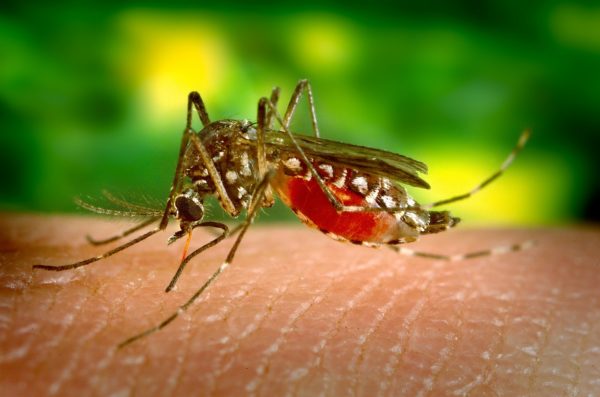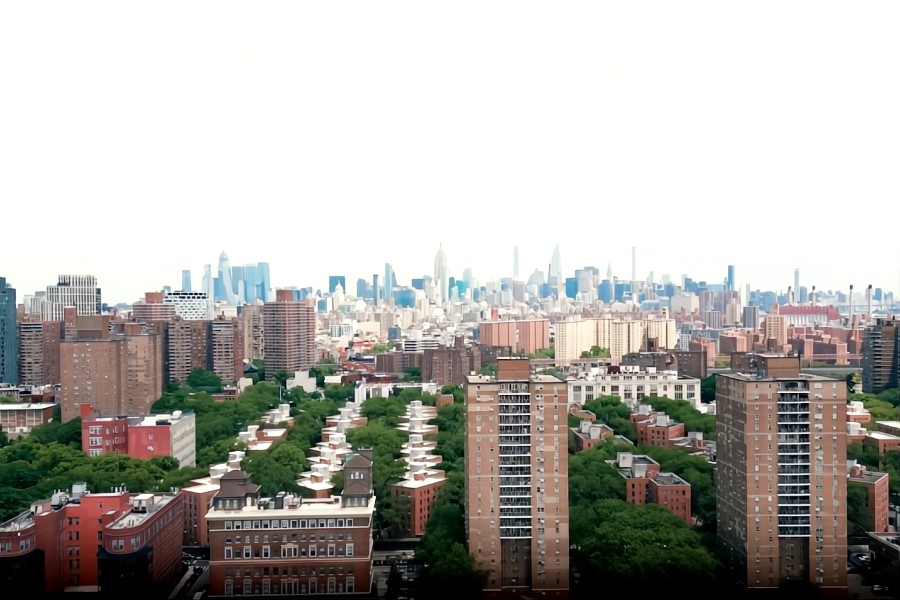 The Health Department today announced that mosquitoes infected with West Nile virus have been detected in New York City.
The Health Department today announced that mosquitoes infected with West Nile virus have been detected in New York City.
The infected Culex pipiens and Cx. restuans mosquitoes were collected in all five boroughs.
One suspected human case of West Nile virus is currently under investigation by the Health Department.
Mosquito season typically spans April through September.
“Let’s not forget safety while enjoying summer fun,” said Health Commissioner Dr. Dave A. Chokshi. “Take simple steps to protect you and your loved ones from mosquito bites this summer: use insect repellent and covering arms and legs.
Standing water can harbor mosquitoes. If you encounter pools of standing water, call 311.”
There are more than 50 permanent surveillance sites citywide, and the Health Department installs additional mosquito traps around affected areas to enhance mosquito surveillance.
The Department uses a comprehensive, integrated management approach to prevent and control mosquitoes that can transmit the West Nile virus.
The City controls the mosquito population by applying larvicide in catch basins, marshland, and other areas with standing water.
The Health Department has already begun catch basin larviciding and conducted two helicopter-based larviciding events in the marsh areas of Staten Island, Brooklyn, Queens, and the Bronx. Pesticides can be sprayed to target adult mosquitoes where persistent West Nile virus activity is detected.
The West Nile virus was first detected in New York City 21 years ago. Since 1999, the number of human cases has ranged from 3 to 47 annually.
The West Nile virus was first detected in New York City 21 years ago. Since 1999, the number of human cases has ranged from 3 to 47 annually.
Of the 359 West Nile virus neuroinvasive disease cases overall, 47 (13%) have died due to their infection.
The number of positive mosquito pools has also varied from 40 to 1,010 per year.
New York City has over 40 species of mosquitoes, but West Nile virus is transmitted primarily by several Culex species, including Culex salinarius and Culex pipiens.
New York City has over 40 species of mosquitoes, but West Nile virus is transmitted primarily by several Culex species, including Culex salinarius and Culex pipiens.
West Nile virus infection can cause a mild or moderate febrile illness; and most (80%) of those infected have no symptoms at all. In some people, particularly those 50 and older or who have weakened immune systems, West Nile virus can cause a serious and potentially fatal infection of the brain and spinal cord.
The most common symptoms are headache, fever, muscle aches, and extreme fatigue. Symptoms of more severe illness can also include changes in mental status and muscle weakness requiring hospitalization.
Most patients who are infected with WNV will go on to fully recover from their illness.
However, some continue to have problems months after infection. If a person has symptoms of West Nile virus, they should contact or see their doctor.
Most New Yorkers diagnosed with West Nile virus report they did not use repellent or take other precautions to prevent a mosquito bite.
Remember to obtain repellent for yourself, and also offer to get it for your older neighbors or relatives.
For information about which repellent is best for you, visit the EPA site to search by product and duration of effectiveness.
The Health Department has successfully helped control mosquito-borne diseases since the West Nile virus was first detected.
Throughout the early spring and summer, the Department conducts regular mosquito surveillance and currently has 106 surveillance traps in the five boroughs.
The agency’s mosquito control efforts are data-driven and rely on our mosquito trapping and testing results to determine areas of the city to spray pesticide and apply larvicide.
Neighborhoods are treated by helicopter, truck or backpacks if enough criteria are met.
Every year, as a part of normal outreach, the Health Department also conducts 80 to 90 presentations to educate communities about mosquito-borne illnesses.
You can request community presentations on West Nile virus and other health topics.
To further reduce mosquito populations, the Health Department also removes standing water and applies larvicide to sites that cannot be emptied or drained; investigates standing water complaints filed through 311; and educates the public about mosquito-borne illnesses through outreach.
Reducing Exposure to Mosquitoes
- Use an approved insect repellent containing picaridin, DEET, oil of lemon eucalyptus (not for children under three), or products that contain the active ingredient IR3535. Visit the EPA site to search by product and duration of effectiveness.
- Make sure windows have screens. Repair or replace screens that have tears or holes.
- Eliminate any standing water from your property and dispose of containers that can collect water. Standing water is a violation of the New York City Health Code.
- Make sure roof gutters are clean and drained properly.
- Clean and chlorinate swimming pools, outdoor saunas, and hot tubs. Keep them empty or covered if not in use. Drain water that collects in pool covers.
For more information about the West Nile virus, or to report standing water, visit nyc.gov/health/wnv or call 311.
Become a Harlem Insider!
By submitting this form, you are consenting to receive marketing emails from: . You can revoke your consent to receive emails at any time by using the SafeUnsubscribe® link, found at the bottom of every email. Emails are serviced by Constant Contact








